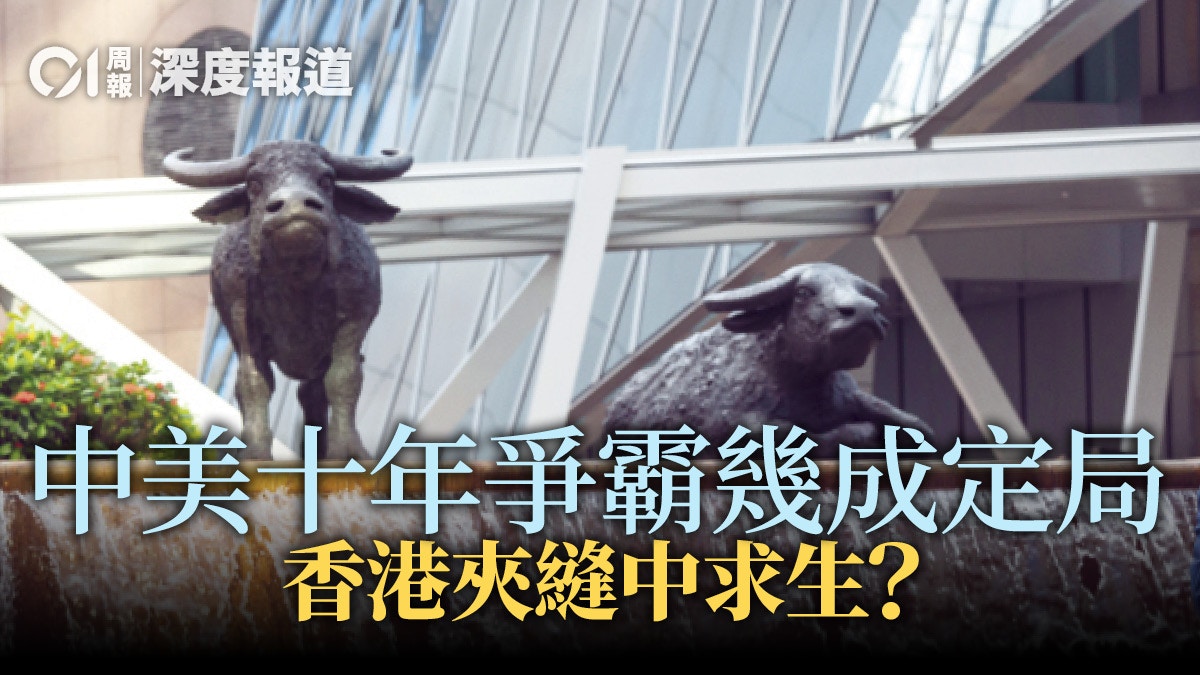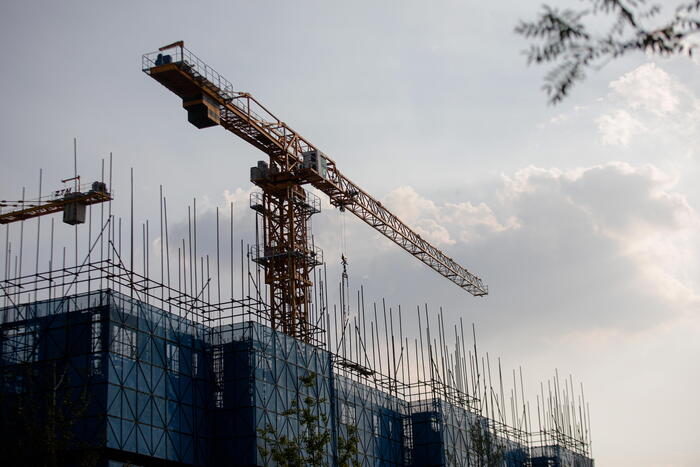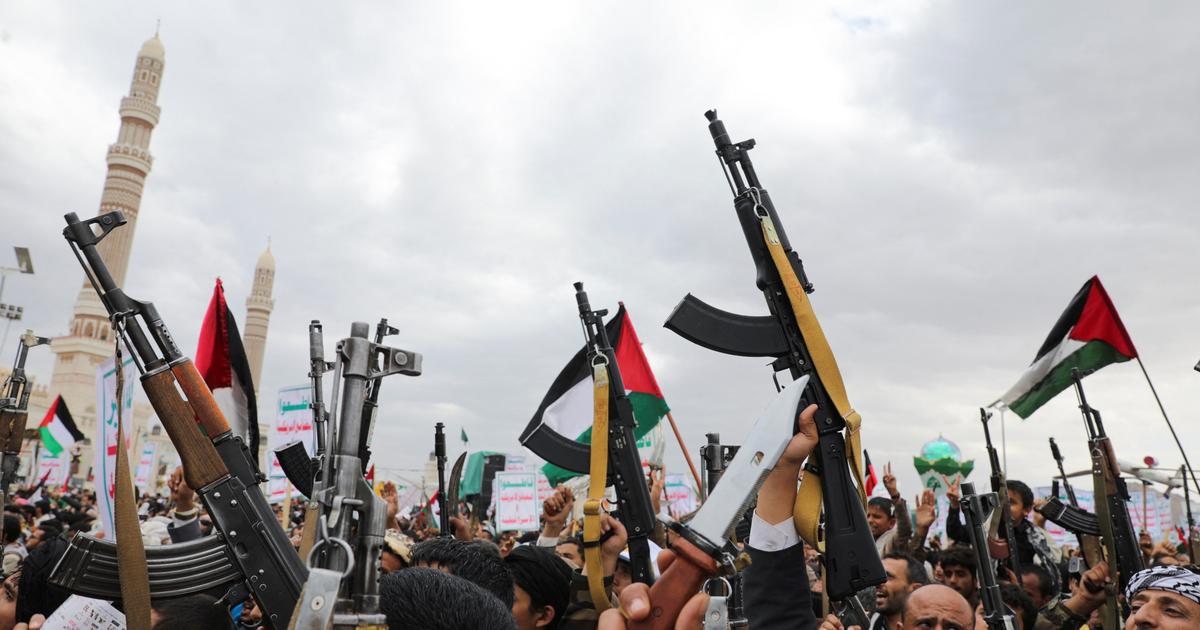weekly
Written by: Yang Yingwei
2021-04-11 21:12
Last update date: 2021-04-12 12:21
As China's most international open highland, Hong Kong is not only unable to protect itself from the current international environmental crisis, but also has long been "encountered by the enemy."
The National People’s Congress formally adopted the "Fourteenth Five-Year Plan for the National Economic and Social Development of the People’s Republic of China and the Outline of Long-Term Goals for 2035" (hereinafter referred to as the "14th Five-Year Plan"), which is a blueprint for modernization. "Double Cycle" strategy to meet the complex challenges of unprecedented changes in the world in a century.
For the Mainland, the dual-cycle strategy has undoubtedly become the main axis of the medium and long-term; but for Hong Kong, the dual-cycle strategy is still a question mark.
The "Double Cycle" emphasizes the need to form a new development pattern in which the domestic and international double cycles are the mainstay and the domestic and international double cycles are mutually promoted. The domestic demand potential of the Chinese market can be used to stimulate China's economic growth. It can be seen that the country's development prospects are broad, but what about Hong Kong?
As the "super liaison" between China and the world, under the new normal of international politics where China and the United States are fighting, Hong Kong's outer circulation hub function will be the first to be affected and hit by external risks.
Hong Kong urgently needs to re-determine its political and economic position in the international arena, find the right direction of development, and be prepared to meet the general trend.
When the central government proposed a dual-cycle national strategy focusing on internal cycles, focusing on internal economic reforms, if Hong Kong does not actively integrate into the overall situation of national development, it will miss the many dividends of the national strategic transformation process and be "marginalized" under the country's top priority. ".
Is this a crisis or a turning point?
The right to choose lies in Hong Kong itself.
"Xinjiang cotton" became a hot word in March, reflecting the sharp confrontation between China and the United States on economic issues such as labor rights, the global industrial chain, and the consumer market.
Long before the cotton turmoil, suppressing China's rise has become the norm in Western politics.
Previously, US President Biden issued the "Interim National Security Strategy Guide", calling China "the only competitor that is likely to combine economic, diplomatic, military, and scientific and technological forces to continue to challenge a stable and open international system." It is "the biggest of this century." The geopolitical threat of the United Kingdom”; later British Prime Minister Johnson said that “the United States is our greatest ally” and “China will undoubtedly bring huge challenges to an open society like the United Kingdom”.
"China has developed to this level, even if you think you are not strong enough, and you are not a big country, others will think you are a big country and a powerful country." Zhang Yuge, director of the Hong Kong, Macao and Regional Development Institute of the China (Shenzhen) Comprehensive Development Research Institute, said it was a double cycle. It is a major country strategy for China's future development to cope with the drastically changing international situation.
However, as China's most international open highland and a "hub" in the external economic cycle, how should Hong Kong respond when the international environmental crisis is pervasive?
When the central government proposes a dual cycle based on an internal cycle, it also means that China has shifted its economic focus to inward. Then how should Hong Kong, which relied on open dividend growth in the past, deal with itself?
In fact, Hong Kong is facing a major shift in external risks from the radical changes in the international system and national strategic adjustments.
As the crisis is approaching, Hong Kong cannot just sit back and wait. It is necessary to have a clear understanding of the nature of the crisis in order to actively seek change.
The Xinjiang cotton incident swept the world. The BCI (Better Cotton Association) and BBC research pointed out that China forced hundreds of thousands of Uyghurs and other ethnic minorities to labor to produce cotton in Xinjiang.
(Information Picture/Reuters)
– Outer Circulation –
External risks continue to intensify, Hong Kong faces political and economic changes
"Suppressing China is already the core theme of the White House, whether it is the Democratic Party or the Republican Party coming to power." Zhang Yuge said.
Liao Qun, chief economist of China CITIC Bank (International), also believes that the current U.S. President Biden is more rational than Trump and is repairing U.S. diplomatic relations, "rebuilding U.S.-centered multilateralism, hoping to use the power of traditional allies to suppress the rising. China. Although it will not be as unpredictable as Trump in the short term, this strategy poses a greater threat to China.” Deng Xiwei, a professor of economics at the School of Economics and Business Administration of the University of Hong Kong, also predicted: The long-term view is the same, and the Sino-US struggle should last for ten years."
This is the new normal of international politics that China will face in its growth and rise, and it is also the first test facing Hong Kong as the opening "forward".
Deng Xiwei said that in terms of politics, "the United States wants to impose sanctions on China, and Hong Kong will also be one of the sanction targets." "Hong Kong's traditional role of "middleman", including the introduction of talents, high-tech and other functions, will be more difficult than before. "On the economic front, Liao Qun emphasized, "The resistance to the external circulation increases, and the economic activities passing through the external circulation hub will decrease, and the functions of Hong Kong will also weaken." This change is "natural" and "imaginable." "of.
Politics and economics are intertwined, and Hong Kong’s strengths may become the most vulnerable weaknesses, such as Hong Kong’s financial functions.
As the largest offshore RMB center, "Hong Kong's financial function is particularly critical to China." Zhang Yuge said that Hong Kong is a buffer zone for China's financial openness and "is an important part of the entire country's financial management system." He said from the external risks of financial openness. From the beginning, take Japan’s financial liberalization as a negative example.
In 1985, the United States, Japan, Britain, France and West Germany signed the "Plaza Agreement" to jointly intervene in the foreign exchange market.
Since then, the yen has appreciated sharply and the U.S. dollar has depreciated sharply. In addition, the Japanese government misjudged the economic situation and followed the quantitative easing monetary policy. After Japan experienced the prosperity of the 1980s, the economic bubble burst, and it has fallen into a long-term predicament since the 1990s. Still desperate.
After taking office, Biden is repairing relations with allies. Although it will not be as unpredictable as Trump in the short term, this strategy poses a greater threat to China.
(Profile Picture/Associated Press)
Zhang Yuge likened Hong Kong to a "porous channel" in China's financial opening: "Hong Kong's finance is a highly open system. It is precisely because the country has Hong Kong as an "international financial center" that China's RMB internationalization is flexible. It will not be forced to open due to external forces.” Just because Hong Kong’s financial function plays a strategic role, “US sanctions on Hong Kong start with finance, including sanctions on financial institutions and financial practitioners.” These tests have already appeared as early as last year. US Secretary of State Pompeo issued a statement saying that it is considering suspending preferential tariff rates to Hong Kong.
Later, the United States announced sanctions on many dry port officials. Any financial institution that has business operations in the United States will be punished if it provides services to these officials.
China has also spared no effort to fight back. Guo Shuqing, Chairman of the China Banking and Insurance Regulatory Commission, stated that US sanctions are "non-binding." The China Banking and Insurance Regulatory Commission and the entire banking system will not implement US laws and regulations, and Hong Kong financial institutions will not implement US sanctions.
However, the trend of US sanctions has only increased. On the eve of the high-level Sino-US negotiations, the US announced additional sanctions against 24 dry port officials.
In addition to wrestling among governments, the industry is also surging.
Many western financial institutions withdrew from Hong Kong on the grounds of "politics."
After the implementation of the "Port National Security Law", Vanguard, the world's second largest asset management company, announced in August last year that it would withdraw from Hong Kong's ETF business and move its Asian headquarters from Hong Kong to Shanghai.
Later, in October last year, the US-funded financial institution Motley Fool directly pointed out that it was unable to predict its business development due to political disputes such as the "Port National Security Act" and announced its withdrawal from Hong Kong.
Recently, the US hedge fund Elliott Management also announced the closure of its Hong Kong office and moved to London and Tokyo.
All this is just the beginning. The political and economic crisis brought about by international political changes has already appeared. Hong Kong, as "China's international financial center," must be prepared.
After the implementation of the "Port National Security Law", Vanguard, the world's second largest asset management company, announced in August last year that it would withdraw from Hong Kong's ETF business and move its Asian headquarters from Hong Kong to Shanghai.
(Profile picture)
– Internal circulation –
Hong Kong may be marginalized by shifting the economic center of gravity inward
In the face of continuous suppression by Western countries headed by the United States in the future, how will China respond?
Sun Xingjie, deputy director of the Institute of International Relations of Jilin University, published an article "The Battle of the Sino-US Industrial Chain and the Future of Systemic Power Competition" on the Chinese website of the Financial Times earlier, pointing out that the competition between China and the United States has entered a stage of systemic competition. , And the "industrial chain dispute" is the key to systemic competition between China and the United States.
The dual cycle is exactly the means by which China builds a complete industrial chain through internal political means, and by reducing the external dependence of the Chinese economy, so as to avoid the risks brought by external changes.
"The double cycle is related to the overall security of the country’s economy." Zhang Yuge said, "China hopes to expand the domestic cycle to avoid "stuck necks"." The so-called "stuck necks" refer to the main industrial chains of the country. Core and cutting-edge technologies/products rely on imports, and once the importing country imposes trade sanctions on them, it will severely weaken the production capacity of major industries and affect economic security.
The most familiar example is the US sanctions against China on chip technology, which has severely affected China's high-tech industries such as smart phones and robots.
In addition to international political considerations, the dual cycle also responds to the needs of the transformation of China's development model.
The reason for the "stuck neck" phenomenon is actually related to China's past export-driven economic development model.
Although the export-driven economy can take a share of the global industrial chain, the long-term "low value-added" labor model cannot drive breakthroughs in cutting-edge technology. For example, the Foxconn factory in Shenzhen is the largest OEM for Apple's mobile phones. However, Apple’s chips and sensors cannot be developed, and the core technology is still in the hands of American companies.
With the continuous increase of China's economic volume and continuous overtaking on the track of various emerging technologies, China's economy has entered a stage of high-quality development from a stage of rapid growth.
Liu Hong, a senior economic researcher at the Hong Kong Institute of Financial Research, Bank of China, also pointed out in the article "The New Development Pattern of "Dual Cycles" in Mainland China and Hong Kong Pattern" that the export-oriented model can no longer meet the needs of high-quality development. Innovation-driven intensive growth must be realized.” High-quality development not only requires industries to provide higher-quality products and services, but also relates to how these products and services open up the market.
It is for this reason that the dual-cycle strategy emphasizes "playing the potential of domestic demand" and using domestic demand to drive market development.
China hopes to avoid being restricted by other cutting-edge technology products such as chips by expanding the internal circulation.
The picture shows the Semiconductor Exhibition held in Shanghai last month.
(Xinhua News Agency)
Zhang Yuge pointed out that last year's Central Economic Work Conference proposed "demand-side reform" for the first time, and the goal was to "promote consumption". "First, there must be good products to supply, and second, people must be able to afford it." Involving the "supply-side reforms" of the central government over the years, aiming to adjust the economic structure, optimize the allocation of factors, and improve the quality and quantity of economic growth; while the latter is related to the "people's livelihood project", "solving income inequality, housing problems, Medical insurance, so that people have no worries about consumption, this is the core of the "demand-side reform"."
After sorting it out, it is not difficult to find that China's reforms are carried out around the internal economic structure and have little to do with Hong Kong.
Since Hong Kong has played a key role in the external cycle for a long time and has not been closely related to China's internal economy, this is inevitably worrying. When China's economic center of gravity is increasingly inward, Hong Kong will be "marginalized" in China's future development.
The development of Hong Kong has always been firmly tied to the national movement.
As the most open special economic zone in China, Hong Kong's past prosperity has largely come from the opening dividend of "China's transformation."
"There is a good example of the ups and downs of Hong Kong's entertainment industry." Deng Xiwei analyzed that the boom in Hong Kong's film and television industry in the 1970s and 1980s was due to the fact that the mainland just allowed the development of entertainment industry. For the Chinese people at that time, the entertainment products made in Hong Kong were not only high-quality, but also creative, they also created many celebrities.” In the 1990s and millenniums, as China gradually opened up, many Hong Kong celebrities went north. , "Nuggets" while making contributions to the entertainment industry in the Mainland.
"Now? The situation has begun to "turn around." Maybe the previous generation of celebrities can still make money, but how many of the new generation of Hong Kong celebrities? Five fingers are "counting the sun"!" Deng Xiwei concluded: "In fact, it is the Chinese environment. The changes in China and the ups and downs of the entertainment industry are driving what role Hong Kong can play."
Deng Xiwei concluded: "In fact, it is the changes in China's overall environment and the ups and downs of the entertainment industry, driving what role Hong Kong can play." (Information picture)
Under the dual-cycle strategy, Hong Kong must resolve the "role crisis" of being a "super liaison."
On the one hand, in the driving force of China's economic growth, the proportion of domestic consumption will continue to increase, while the proportion of external demand exports will continue to decline.
Hong Kong's re-export business and financing business that rely on China's foreign trade will inevitably be under pressure.
On the other hand, China is still opening up on a trial basis, and will continue to compete with Hong Kong in the mainland and overseas markets in the future. Shanghai’s pilot financial opening, Shenzhen’s pilot market system, and Hainan’s pilot trade opening are the best examples.
At the moment when dividends are no longer available, Hong Kong must reposition itself to find its own characteristics and advantages.
Over-reliance on the single-industry advantage of finance will only make Hong Kong's economy less capable of resisting risks, and it may end up "losing nothing."
"In time, when the (Mainland) financial sector is fully open, Hong Kong really has to think clearly about the difference between itself and Shanghai." Deng Xiwei said bluntly in the past few years that Hong Kong has not seen any significant contribution to the country's "going out" in addition to finance. "Mainland China With more openness, the economy gets better and better, and the dependence on Hong Kong as the "middleman" is getting less and less."
The above is excerpted from the 260th issue of "Hong Kong 01" Weekly Report (April 12, 2021) "Perspective National Dual Cycle Strategy to Face Hong Kong's Crisis and Opportunities". If you want to read the full text, please
click here to
sample the weekly newsletter and browse more in-depth reports.
260th issue of "Hong Kong 01" Weekly News Highlights
In-depth report in Xinjiang 01 Weekly Report on Sino-US Relations in the Hong Kong Economic Greater Bay Area





/cloudfront-eu-central-1.images.arcpublishing.com/prisa/3I74UEXLYRBBRPGPSGWNN6WXH4.jpg)







